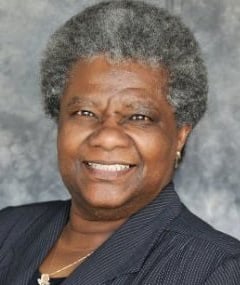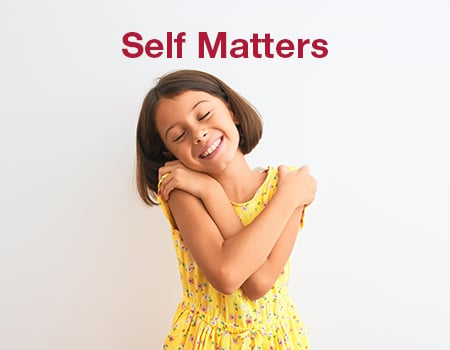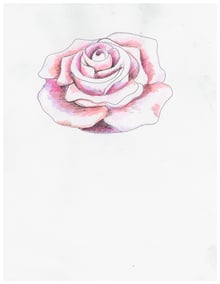What have you always wanted to do, but other people gave you a lot of reasons why the dream was impossible? They may have told you it was silly, too expensive, you were too old, it would take too long, etc. You may have decided they were right, and you were better off where you were. Your present situation was uncomfortable, or worse. But, you reasoned, you knew what to expect. Stepping into a new venture can be unnerving. It also can be exhilarating. Friends and family members often think they’re giving us good advice and saving us from the disappointment and shame of certain failure. And, yes, others are afraid we will grow beyond them and they can no longer relate to us. And, for others, it’s plain old envy. So, you put your dreams on a shelf with plans to take them down and dust them off “someday.” Then life happens, and you think it’s too late.
Or perhaps you gave up. Granted, some mistakes seal your fate and there are no do-over options. In those situations, you offer yourself permission to grieve and self-compassion as you seek a possible new direction. In work and social situations, you may timidly ask, “May I offer a different take on this?” You want to be polite and spare the feelings of others. There is also an element of not wanting to appear disagreeable. Or unknowledgeable. Or even too smart. The result is giving others permission to decide your life which is disheartening and exhausting.
My Experience
People in my early life demanded blind obedience. My main goal in life then was to be as perfect and obedient as possible to avoid their anger and ridicule. I wrote a script of beliefs under the umbrella theme of “I’m not good enough to make my own decisions.” “If I speak up, they will embarrass me.” “If I make this decision and fail, people will laugh at me.” “If I say what I think, I’ll make somebody mad and they’ll retaliate against me.” Pretty drastic. But those thoughts were rooted in experience. So, I became shy and withdrawn. I did not claim personal power in any part of my life.
One day in a session with my therapist, I asked to share a passage from my journal. He gently replied, “You don’t have to ask for permission.” That sentence changed my life. Over the succeeding weeks, I journaled copious pages about how asking for permission overshadowed the real me. Now, I face life head-on, unflinchingly, seeking out support and guidance from others, not to be rescued, but to walk the path with me. They help me come to my own answers from deep within me. I now know a personal freedom I never dreamed possible. I feel truly alive as a participant in my own life.
I now show up as my authentic self. I ask questions. I voice my disagreement or displeasure. I make decisions based on my experience and from researching the topic. It doesn’t mean I don’t ask for guidance, input, critique, and feedback. I do so quite often. But I no longer rely on others to determine how I “should” feel or think or believe. Something that sounds scary to someone else may be a courageous and wonderful opportunity for me.
I now avoid defining my Self and my worth as a human being based on my failures and mistakes. “This approach failed,” rather than “I’m a failure.” I no longer take the judgments and expectations of others into my core as Truth. I listen to others as guides, not determiners.
Why We Do It
You seek permission to garner validation for your decisions. Sometimes, you’ve already decided a course of action, so asking permission may be two-fold—announcing your decision, and to hear feel-good words from someone important to you. These are not bad things. But rather an awareness they can happen. Constantly believing you must ask for permission whittles away your sense of Self, and invites self-doubt, feelings of inadequacy, and fear of failure. Other people loom large and more knowledgeable. You override your own internal wisdom and make decisions based on what you think others want you to do. “I can’t tell my parents I’m thinking about quitting my job and starting a non-profit. Especially after what they spent for me to go to college.” “I can’t tell my husband I want a divorce. We just bought this house.” “I don’t dare drive cross country by myself. Everyone knows it’s too dangerous.” Insert your own message here. You’ve heard the messages so often, your response to them is automatic.
There Is Another Way
What if you flipped the switch? What if you decided your perspective is as important as everyone else’s? What if you took a deep breath, smiled, and said aloud, “I give myself permission to be me.” What if you stated out loud, “I give myself permission to X?” Afterall, you are the only one who is with you 24/7 regardless of who else is present or what you are doing. You have within you the intelligence and the ability to speak and act on your own behalf. Let that sink in a moment. Then repeat out loud, “I have within me the intelligence and the ability to speak and act on my own behalf.”
You can reimagine yourself as the vibrant human being you are. Preferences, habits, internal rhythms, abilities, experiences, and interpretation of the world are all universal and unique to every individual. If that were not true, there would not be thousands of shades of lipstick, hundreds of variations of motor vehicles, millions of books in countless formats on myriad topics, and educational systems teaching niche programs. You can spend quiet time to ask who you are under the layers of everyone else’s fantasies of you. What do you really want? Beyond losing 25 pounds. Beyond saving more money. Beyond cleaning out the attic. Beyond finding a part-time job. I wanted inner peace more than anything else. I wanted to feel at peace with my body. I wanted to feel at peace with my finances. I wanted to feel at peace with the top of my desk. I wanted to feel at peace with my writing career. It doesn’t mean I stop trying to be a better person. Through continued introspection, reflection, my interactions with others, and learning as much as I can about things important to me, my life is full and meaningful. You may still want to lose 25 pounds. But you now see your body for the magnificent powerhouse it is, so you honor it in ways that feel good to you.
Your efforts to dislodge ingrained messages and the feelings they trigger take courage and determination. Feelings are real and valid. You may hesitate as you begin to step out of the shell you created perhaps many years or even decades ago. When you decide to live authentically from your Truth rather than someone else’s fantasies about who you should be others may push back against your newly found voice.
Time To Consult The Oracle (Your Journal)
You may already know your journal is your best friend and confidant, accepting your most gut-wrenching entries without failure, without judgment, without discounting. Consider these tips for using your journal to step out of the discomfort of your comfort zone where all may not be well, but it is familiar, into a life of authenticity, self-reliance, and interdependence.
- Write about a situation in which someone talked you into something you didn’t want to do or out of a dream.
- Write in your journal: “I did what X thought was more important in my life and I made the wrong decision.” You can use any sentence structure that fits you. The point is to look at the situation with the clarity that helps you see where you gave someone else permission rather than giving it to yourself.
- Next, write what you wish you would have done, instead. Imagine yourself making that decision possibly above the objections of that person or others. Say the words you wish you had said. Square your shoulders. Speak out loud in a low, level voice. Imagine the looks on their faces as you state your truth. Then, see them fading from the scene.
- Write how that felt. How did your feelings change from the beginning of the exercise to the end?
- Now, write how you want to respond to a similar situation in the future.
- If you can, take advantage of the opportunity now. Write the steps you need to take to reach the goal of X.
Now What?
Enjoy your new wings as you give yourself permission to honor your experiences, your thoughts, your feelings, and to celebrate your authenticity.

Billie Wade, a lifelong journaler, believes people are precious, sacred, resilient, and stronger than they know. She created Journaling to Heal, LLC which helps people discover the power of writing in their process of recovery from emotional stress and trauma. Visit her at www.billiewade.com and find more of her writing on www.dmpcc.org/billie where she writes a monthly newsletter column for Des Moines Pastoral Counseling Center.



Leave Comment